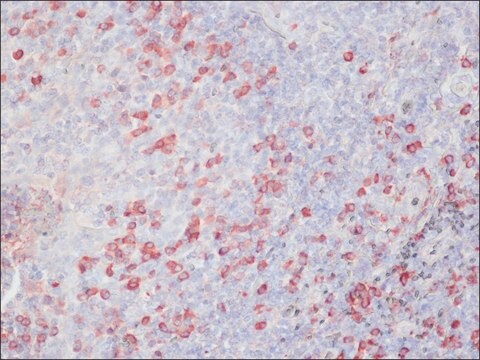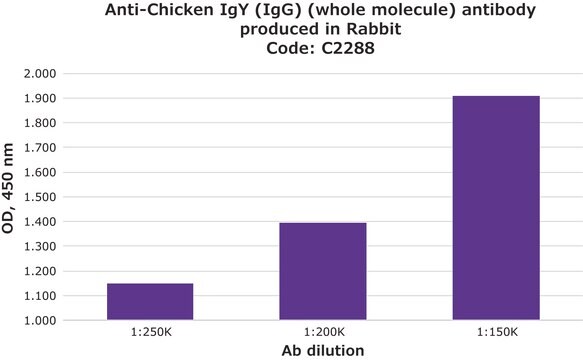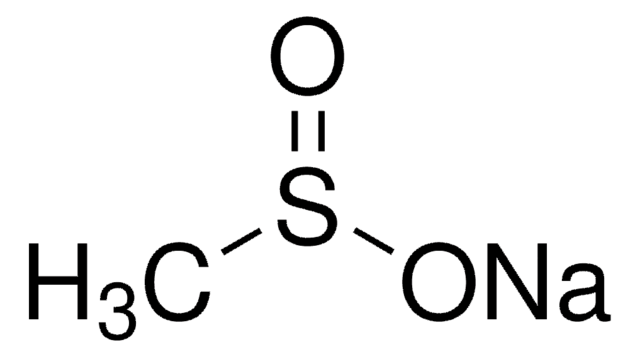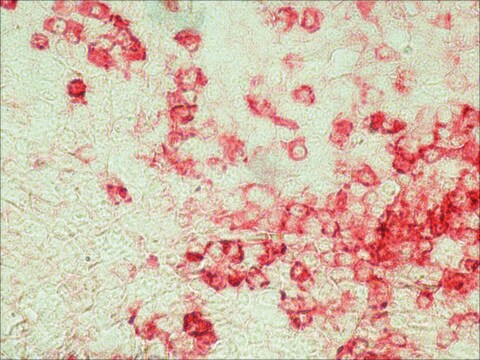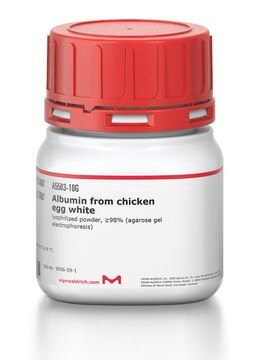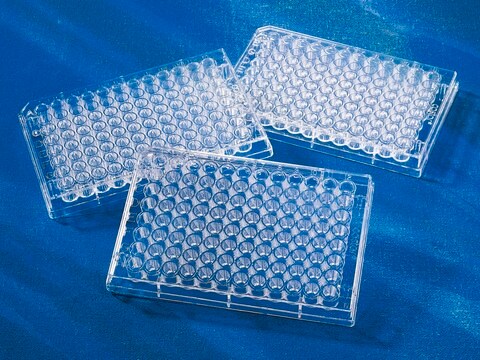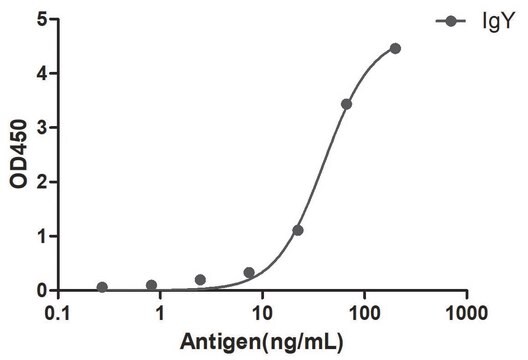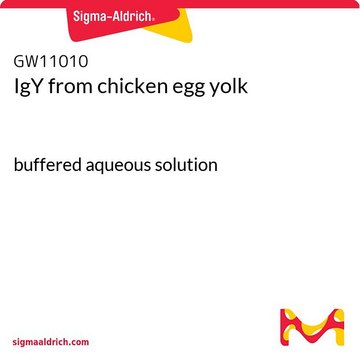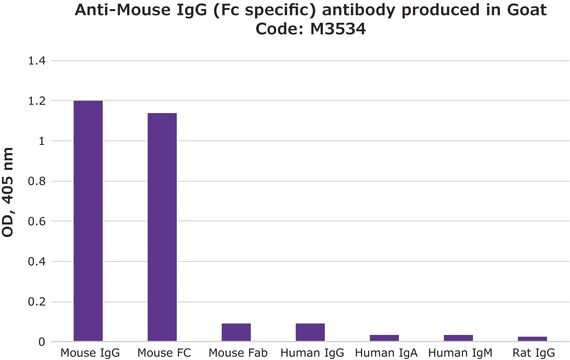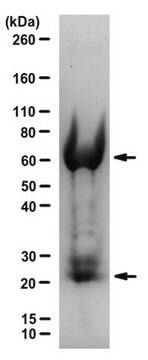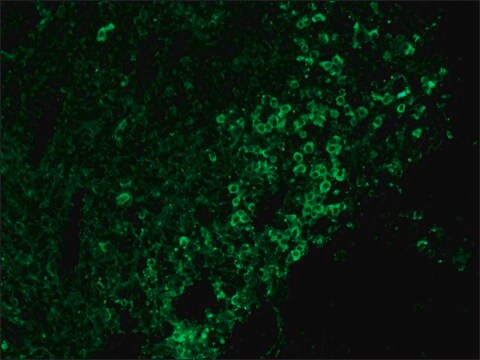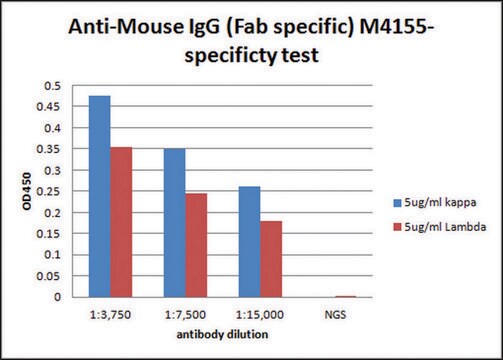A9792
Anti-Chicken IgY (IgG) (whole molecule)−Peroxidase antibody produced in rabbit
IgG fraction of antiserum, buffered aqueous solution
Synonyme(s) :
Rabbit Anti-Chicken IgY (IgG) (whole molecule)−HRP
About This Item
Produits recommandés
Source biologique
rabbit
Niveau de qualité
Conjugué
peroxidase conjugate
Forme d'anticorps
IgG fraction of antiserum
Type de produit anticorps
secondary antibodies
Clone
polyclonal
Forme
buffered aqueous solution
Espèces réactives
chicken
Technique(s)
direct ELISA: 1:30,000
dot blot: 1:160,000 using indirect chemiluminescence system using 5 ng human IgG/dot and chicken anti-human IgG as the primary antibody and Luminol plus enhancer as the substrate.
immunohistochemistry (formalin-fixed, paraffin-embedded sections): 1:500 using using human pancreas sections and chicken anti-human insulin as the primary antibody.
Conditions d'expédition
dry ice
Température de stockage
−20°C
Modification post-traductionnelle de la cible
unmodified
Vous recherchez des produits similaires ? Visite Guide de comparaison des produits
Description générale
Spécificité
Immunogène
Application
Actions biochimiques/physiologiques
Forme physique
Notes préparatoires
Clause de non-responsabilité
Vous ne trouvez pas le bon produit ?
Essayez notre Outil de sélection de produits.
Mention d'avertissement
Danger
Mentions de danger
Conseils de prudence
Classification des risques
Resp. Sens. 1 - Skin Sens. 1
Code de la classe de stockage
12 - Non Combustible Liquids
Classe de danger pour l'eau (WGK)
WGK 2
Point d'éclair (°F)
Not applicable
Point d'éclair (°C)
Not applicable
Faites votre choix parmi les versions les plus récentes :
Déjà en possession de ce produit ?
Retrouvez la documentation relative aux produits que vous avez récemment achetés dans la Bibliothèque de documents.
Les clients ont également consulté
Notre équipe de scientifiques dispose d'une expérience dans tous les secteurs de la recherche, notamment en sciences de la vie, science des matériaux, synthèse chimique, chromatographie, analyse et dans de nombreux autres domaines..
Contacter notre Service technique